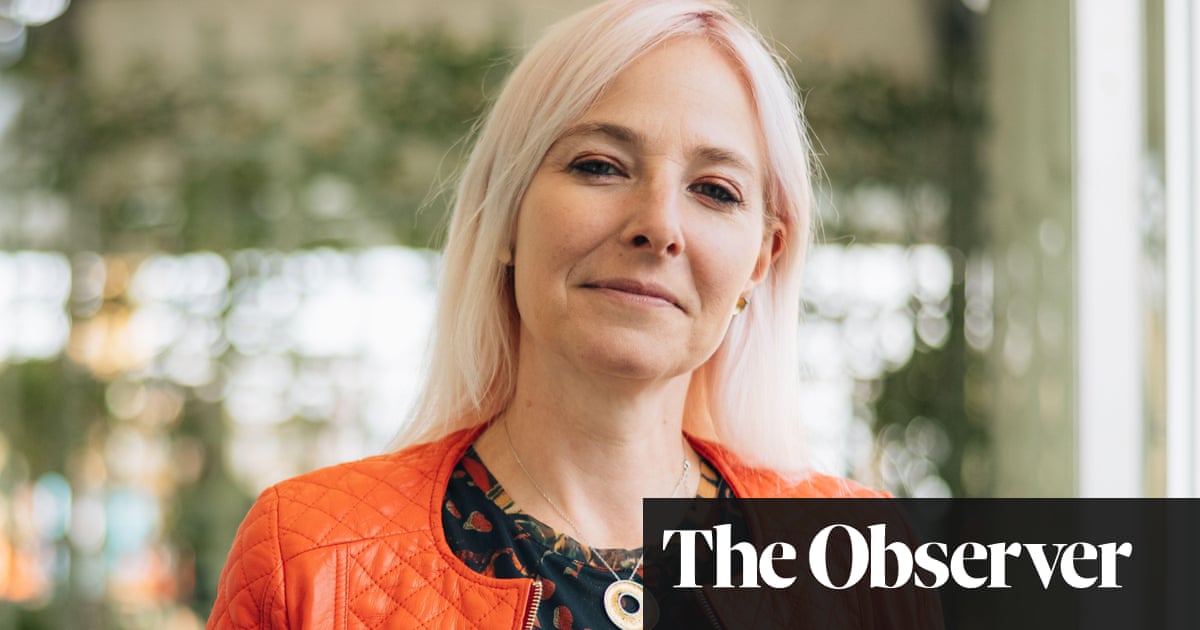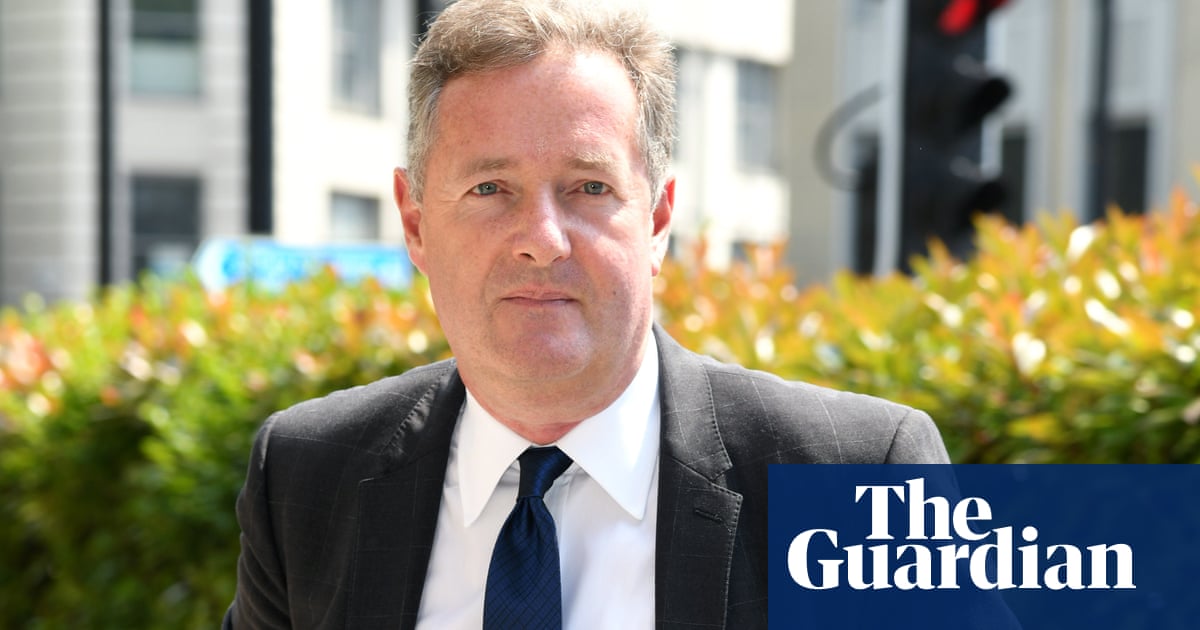
Every morning as I wake, I give myself a number. From one to 10. My depression scale. So much of the day ahead will depend on that first feeling, and the mark I give to my mood.
One is pure, unadulterated happiness. Ten is actively suicidal. I never hit, or even acknowledge, either of those deliberately. One, for me at least, is unattainable. No matter how good I feel there is always something to make me restless or anxious. So, no matter how loved and lucky I may be – I am both – no matter how motivated I might be to face the day, two out of 10 is as good as I allow it to get. Just as one is a no-go zone, so is 10.
I don’t like even to acknowledge that 10 might arise, because in my rating system it is the number you reach when you decide not only that the pain inside is so unbearable that death would be preferable, but you also act upon it. Ten is where my cousin Lachie was when he ended his life in 2000. My highest ever has been nine.
So if one and 10 are out of bounds, how does the rest of my scale work? Two feels great. I wake, having slept well; Fiona [Millar, a journalist and education campaigner] is alongside me and I feel blessed that she has stayed with me for four decades of considerable ups and downs; I have a day ahead that will keep me busy, motivated, doing something vaguely important. Three and four are slightly downscale variations on the same themes.
If any of the children are unhappy, that can knock the rating upwards. We are, after all, never happier than our least-happy child. Tiredness and bad dreams can add a point to the rating. Politics can do it, too: Covid-19, Brexit, climate change, Labour, Donald Trump, Boris Johnson, all occasionally provoke an upward tick. Five is when I start to worry. It is when I am in the middle of the scale that it most helps to have it. Five is the beginning of the danger zone. Seven is basically the signal to cancel meetings, stay indoors, avoid people; and when that slips to eight and nine, to get into bed and sleep as much as possible.
Five and six, then, are the key. Once they come on, it is vital to stave them off from going higher. So I have my little tests. Shaving is crucial. It is amazing how often depressed men have stubble. Shaving is one of the first things that goes for me. There is a blind on the landing outside our bedroom. I force myself to open it. That mundane act has sometimes held me at five or even got me back to four. If I walk past the blind without opening it, it means I’m already at six. Seven is when others start to notice.
By seven, even the act of speaking is hard. With eight, I will try to clear out as much of the day’s diary as I can, certainly no social engagements, only professional ones that really cannot be called off. At nine, even they go, because now bed is the only place to be.
Self-harm is a downscaled version of the same thing. Any addiction is self-harm. I have known addiction, I have known self-harm, and in 2005, a couple of years after I had “left” Downing Street (I never really left and that was one of the big problems), amid one of my worst and most prolonged bouts of depression, I inflicted on myself one of my worst experiences of physical self-harm.
Partly, I think, I was going through decompression. I had for more than a decade operated under a level of pressure that, my GP once told me, most people would not tolerate for a day or a week, let alone a year or a decade. I had gone from having clear and complete professional purpose to an empty diary, and the panicky feeling I had to start all over again.
It was not a happy time for me or for the family. I remember David Blunkett coming for dinner and I overheard a conversation between him and my daughter Grace.
“What does your dad do with his time now?”
“Well, when I go to school in the morning, he sits on the sofa having a cup of coffee. And when I come back at the end of the day he is lying on the sofa fast asleep.”
It was unsustainable. Something had to give. So something did and I exploded a few days later.
Fiona thought we were still going through a period of intense recrimination – she blamed me for bringing so much pressure into the family, I blamed her for forcing me out of the role I felt I was made for – was really trying her best and suggested we go for a walk to talk things over. Again.
We had also had an argument over Labour education policy. She said our departure from Downing Street now meant she should be free to say what she wanted. And now she was badgering me to go with her to an event where she, Neil Kinnock and others would continue the assault, and I knew the media would be looking at me for my reaction.
As we walked through the woods, I felt the pain inside combining with rage about it not subsiding, and the seeming inability of the two of us to get on, and I began to punch myself in the face. Hard. Bruisingly hard. I was losing my sanity. She said later she thought it was just me feeling so wretched inside. But I think it was more that I felt as if I would never see the back of my depression because the circumstances that worsened it kept crowding in on me.
Does the scale help? I find it does. Ruling out one and 10 helps, but I have definitely been at nine. In Australia recently, where I was announced as a global ambassador for Australians for Mental Health, a road transport official talked to me about the official suicide statistics. He said the real figures were totally underestimated “because so many road traffic deaths, which are classed as accidents, are actually almost certainly suicides.” That really resonated with me.
I remember when the Hutton Inquiry into the death of government weapons inspector David Kelly was under way. I got a fax while on holiday in France saying that Lord Hutton wanted to see my private diaries.
It was a horrible shock and I felt scared and powerless. Scared because God knows what he would make of the things I said to myself late at night in the privacy of my own diary. One wrong word and it could be the end not just of me, but the government. There was an additional complication – the diaries were in London and I was in France. We had to get them flown to Marseille, so the head person from the British Consulate could get them to me so I could then meet up with my lawyer, Jonathan Sumption, to whom I would have to read them, so he could decide what would be deemed relevant to the inquiry.
On the drive back from the airport – the diaries sitting on the passenger seat, me scared to open them, Fiona and Tony Blair repeatedly calling to ask if I had them – I came as close as I have ever done to becoming one of those road traffic accident stats that is actually a suicide.
Eventually, I pulled over, and tried to calm myself. I did what I often did when under pressure – I compared how I was feeling to how I felt at my worst, psychotic meltdown in 1986. That was a nine. How bad is this? Six, maybe seven. Come on. You can get through it.
Then my phone rang. It was my deputy, Godric Smith, calling for a chat. He was unaware that I had been asked for my diaries and that I had been advised to get my own independent legal advice. He exploded, on my behalf, at the unfairness. Then he exploded at the fact he, who was also being called to the inquiry, had been given no advice from the Cabinet Office at all. His explosion was so huge it became comic, and helped my suicidal feelings pass.
But as for feelings, I want to try to answer the question, for those who have not known depression… What is it like? All I can do is describe my own. Just as all minds are unique, I suspect that all depressions are, too.
It usually starts as I wake. My head feels a little heavier than usual and I have a desire to go back to sleep, but can’t. I stare at the ceiling, and to my left, about 6-8ft away, I have a sense of a dark grey cloud, oval, about five times the size of a rugby ball, which fills me with dread. It has a colour, a texture, and it has a feel, a kind of really unpleasant sort of jelly feel. I might talk to it: “Please, no, go away. Just fuck off.”
In my mind’s eye there is now a smile on this cloud, and it is moving in, and I am trying to push it away, but I can’t. Its smile is growing because it knows I am about to give up the struggle and let it in. Reluctantly, I say: “Come on then, let’s get it over with,” and then it is inside me, and it feels like a heavy liquid is being poured through my veins, and my body starts to join my mind in feeling heavy. The cloud has evaporated, but its smile is still there, and it is saying, “Gotcha… again… you thought you were rid of me… no chance… I’m back, and this time I’m never going away.”
In the old days, I would live with that feeling, get up, carry on, pretend I was fine, drink to drown the depression, work to chase it away. Now I tell Fiona straight away. She always asks, though she knows what my answer will be, “What triggered it?” and I say, “I don’t know.”
The dynamo I normally feel 24/7 whirring inside me is switched off. Literally, you feel as if there is a power cut. Energy gone. Power gone. Desire gone. Motivation gone. The ability to feel anything other than the numbing pain the cloud has brought into you – gone. Everything gone, gone, all gone.
It hurts everywhere, uniformly, outside and, especially, inside. My voice weakens and I have a mild but unpleasant metallic taste in my mouth. As to what I am feeling emotionally, yes, I am sad, but it is much worse than that. It is despair. Hopelessness. Hopelessness in both meanings of the word… I feel devoid of hope that my life will ever be good, and I feel pathetic, worthless, useless, that I have so much going for me and yet, yet again, this fucking cloud has come in, taken me over, beaten me.
Whatever is going on around me, things that I would normally be interested in, I’m not. There is an existential feeling of, “I just don’t want to be here.” I don’t want to be with these people, right here, right now. And I just don’t want to be here. Full stop. Now the depression is in full control. I can literally see no point, in the moment or in the future. Dead and alive at the same time… I keep coming back to that as the best description. That is when, these days at least, I will vacate. Disappear. Out to the car, drive aimlessly, walk aimlessly, anywhere I can be alone, and not have to speak. Here is where it is hard for partners. I want Fiona to be nearby, but I don’t want her in my face. It is hard for me, and hard for her. But the openness we have found in recent years, me telling her when the cloud is coming, her understanding it is not her fault… This has really helped both of us.
As to how long it lasts, and how it leaves, again that varies. I would say four days is around average. Sometimes I can feel as if it is going, but then it doesn’t. Sometimes its departure can be slow, a diminishing of the pain and the lethargy over a few days. Other times it can pass almost as quickly as it came. Just as I can never isolate the trigger that causes it, so I can never confidently identify the reasons why it goes. Sleep can help. Exercise can help. Music can help. Above all, getting on well in my key relationships helps.
Though there is a lot of sadness and grief in what I am saying, I hope you also find… hope. The sub-title of my book is important – Living Better: How I Learned to Survive Depression. It is about how I survived depression. The thinking and exploring I have done in writing it has undoubtedly helped me add to the strategies I deploy to stay, most of the time, pretty well. But I also hope the book serves a broader purpose, to help change the lens on the way we think, speak and act in relation to mental illness.
Cancer used to be taboo. The big C. As a society we have developed the language so that we can understand, support and sympathise. Now we need to do the same for mental illness. It’s time for people to be as open about their mental health as they are about their physical health, and feel neither shame nor fear in being so. I want us to become a society where we would no more tolerate seriously mentally ill people sleeping on the streets – as we do, in increasing numbers – than we would walk past someone who fell off the pavement and broke an ankle, or who collapsed with a stroke or heart attack, without immediately trying to help.
I know my depression will always be a part of me. I’ve accepted that now. I still have suicidal thoughts and dark days, and I always will. But at least now I can recognise them, I feel them coming on, and I can deal with them better than I used to. There may one day be a vaccine for Covid-19. But I doubt there will ever be a vaccine or a cure for depression. It is part of the human condition; it is certainly part of mine. I’ve spent decades learning to live with that. And now, through trial and error, through medication and therapy, through highs and lows, above all through grief and love, I have finally got to know my enemy. I live better for having dealt with it. And I deal with it, through living better. I hope that for some of you out there, this book can help you do the same.
Living Better: How I Learned to Survive Depression by Alastair Campbell is published on 3 September by John Murray at £16.99. Buy a copy for £14.78 from guardianbookshop.com
If you have been affected by any of these issues, contact the Samaritans on 116 123, or samaritans.org












